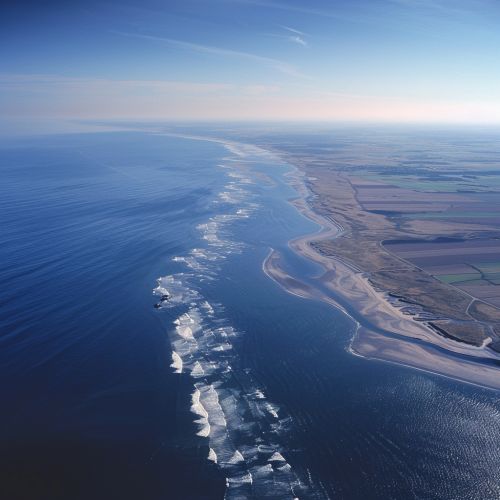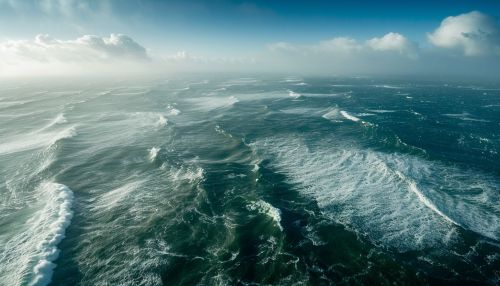North Sea
Geography
The North Sea is a marginal sea of the Atlantic Ocean located between Great Britain, Scandinavia, Germany, the Netherlands, Belgium, and France. An epeiric (or "shelf") sea on the European continental shelf, it connects to the ocean through the English Channel in the south and the Norwegian Sea in the north. It is more than 970 kilometres (600 mi) long and 580 kilometres (360 mi) wide, with an area of around 750,000 square kilometres (290,000 sq mi).


Hydrography and Water Circulation
The North Sea is a semi-enclosed sea with water exchange occurring mainly through the English Channel and the Norwegian Trench. The water circulation in the North Sea is complex, driven by tide, wind, and differences in water density. The North Sea is home to one of the world's highest levels of tidal activity, which significantly influences its water circulation and marine life.
Climate
The climate of the North Sea is classified as oceanic (Cfb) under the Köppen climate classification system. This means that the sea experiences cool summers and mild winters, with precipitation distributed throughout the year. The North Sea's climate is significantly influenced by its latitude, marine influences, and interaction with air masses from different origins.
Marine Life
The North Sea is rich in marine life, with more than 230 species of fish, including cod, haddock, mackerel, and herring. It also supports many species of marine mammals, such as seals and porpoises, and is a major breeding ground for seabirds. The North Sea's biodiversity is a result of its varied habitats, which include open water, sandy beaches, rocky shores, and estuaries.
Economy
The North Sea plays a crucial role in the economies of surrounding countries, providing resources for major industries such as fishing, shipping, and tourism. It is also a significant source of non-renewable resources, including oil and natural gas. The North Sea oil industry has been a major part of the region's economy since the late 20th century, with significant reserves still being exploited today.
Environmental Issues
The North Sea has faced significant environmental challenges, including overfishing, pollution, and the effects of climate change. Efforts to manage and mitigate these issues have included international cooperation and regulation, technological innovation, and the development of marine protected areas.
